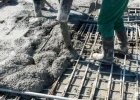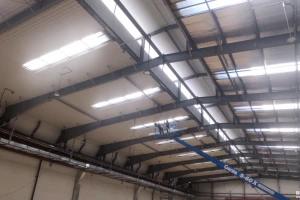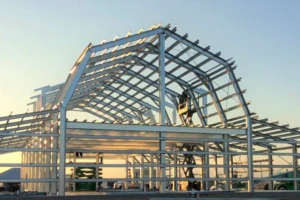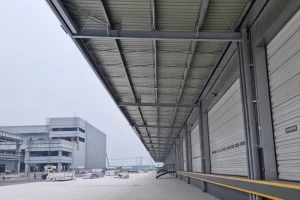The role of project management in pre-engineered steel building construction
Pre-engineered steel buildings are becoming increasingly popular in the construction industry due to their various advantages. However, the successful construction of such buildings requires effective project management. In pre-engineered steel building construction, project management plays a vital role in ensuring timely completion, maintaining quality standards, managing risks, and optimizing resource utilization. This topic will discuss the role of project management in pre-engineered steel building construction.
1. A brief introduction to the pre-engineered steel building concept
Pre-engineered steel buildings refer to structures that are designed, fabricated, and assembled using standardized components and methods before being transported to the construction site. These buildings are engineered to meet specific requirements and are manufactured off-site, allowing for faster and more efficient construction processes.
The components of pre-engineered steel buildings, such as columns, beams, and panels, are fabricated in a factory and then assembled on-site. This construction method provides numerous advantages, including cost-effectiveness, customization options, durability, and compliance with building codes and regulations. Pre-engineered steel buildings have gained popularity in various industries, including the food industry, due to their versatility, efficiency, and ability to meet the unique needs of different applications.
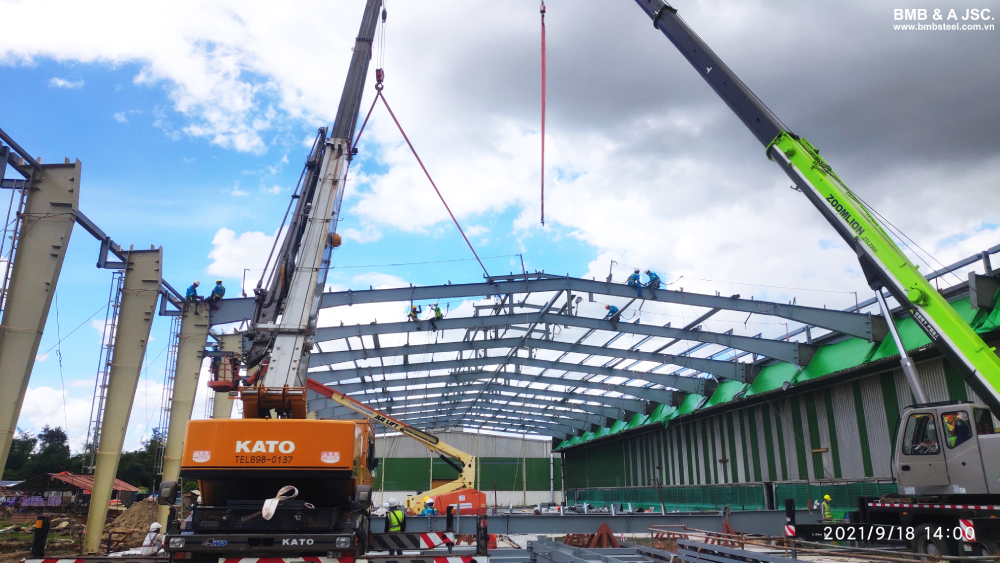
2. The role of project management in pre-engineered steel building construction
Project management plays a crucial role in pre-engineered steel building construction projects. It involves overseeing and coordinating the various activities and resources required to successfully complete the project from inception to completion. Here are some key aspects of project management in pre-engineered steel building construction:
- Planning and design: Project management begins with the planning and design phase. The project manager works closely with architects, engineers, and other stakeholders to define project requirements, develop design specifications, and create a detailed project plan. This includes determining the scope, budget, schedule, and quality standards for the construction project.
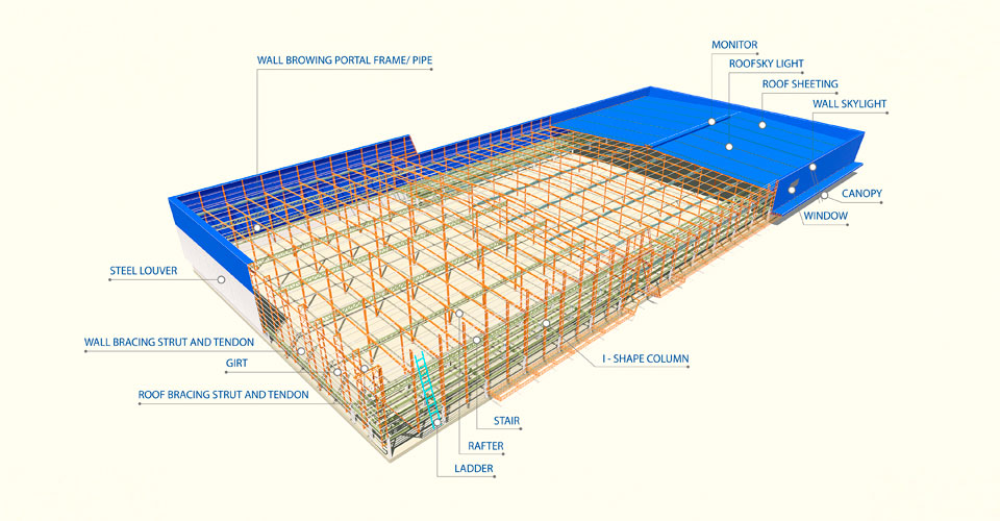
Design of pre-engineered steel building - Procurement and contract Management: Project managers are responsible for procuring the necessary materials, equipment, and services for the construction project. This involves selecting suppliers, negotiating contracts, managing procurement processes, and ensuring timely delivery of materials to the site. Effective contract management is crucial to ensure compliance, mitigate risks, and resolve any contractual disputes that may arise.
- Resource allocation: Project managers allocate and manage the resources required for the construction project. This includes human resources, such as laborers, supervisors, and subcontractors, as well as equipment, machinery, and materials. They ensure that resources are effectively utilized, monitor productivity, and address any resource constraints or bottlenecks that may impact project progress.
- Schedule and time management: Meeting project deadlines is critical in construction projects. Project managers develop and maintain a detailed project schedule, identifying key milestones, activities, and dependencies. They monitor progress, track project timelines, and make adjustments as needed to ensure timely completion. Effective time management is essential for coordinating various tasks, optimizing efficiency, and avoiding delays.
- Quality control: Maintaining high-quality standards is paramount in pre-engineered steel building construction. Project managers develop quality control plans, establish quality assurance processes, and monitor compliance with standards and specifications of pre-engineered steel building construction. They conduct regular inspections, implement quality control measures, and address any issues or deficiencies that may arise during construction.
- Risk management: Construction projects involve inherent risks, such as safety hazards, design changes, weather conditions, and unforeseen site conditions. Project managers identify potential risks, assess their impacts, and develop strategies to mitigate and manage them. They establish safety protocols, monitor compliance with regulations, and implement contingency plans to address unforeseen events or disruptions.
- Communication and stakeholder management: Project managers serve as the primary point of contact for all project stakeholders, including clients, architects, engineers, contractors, and regulatory authorities. They facilitate effective communication, provide regular project updates, address concerns, maintain positive relationships, resolve conflicts, and ensuring project success.

Communication in doing a project - Financial management: Project managers are responsible for monitoring and controlling project finances. They develop and manage the project budget, track costs, approve expenditures, and ensure financial accountability. They work closely with the project team and financial stakeholders to optimize cost efficiency, minimize budget overruns, and maximize the return on investment.
3. BMB’s approach to project management in pre-engineered steel building construction
It is vital for all companies to comply with the principles of project management in order to ensure that the project is completed timely with good quality and without any risks. With the awareness of the importance of project management, BMB Steel always prioritizes project planning, scheduling, and cost control. We also have a comprehensive project management framework focusing on scope management and stakeholder engagement. Since we always consider this, BMB Steel can be proud to be a high-quality steel contractor that can carry out all projects successfully. Consider our company and you will not regret the decisions.
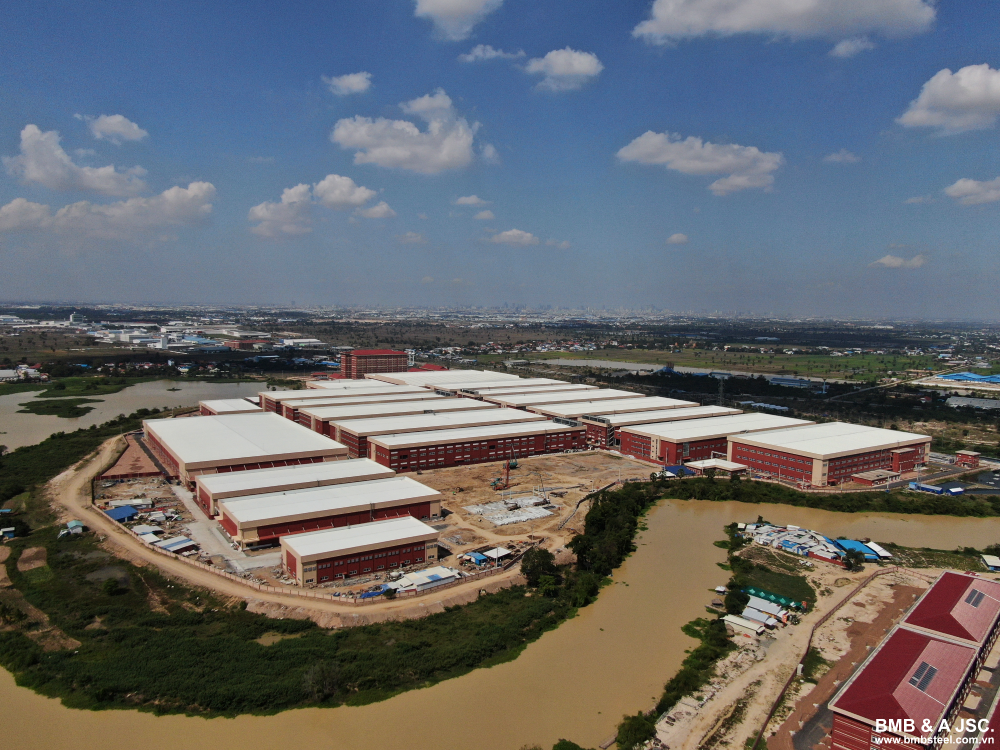
Above is some information regarding the role of project management in pre-engineered steel building construction. Hopefully, this article has provided you with helpful information. Visit BMB Steel’s website to read more about pre-engineered steel buildings and steel structures. You can also contact us for design consulting and steel production services.









